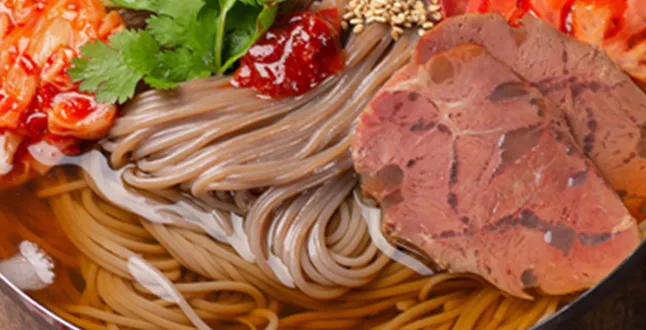are ramen noodles bad for your health
Are Ramen Noodles Bad for Your Health?
Ramen noodles are often seen as a convenient and affordable meal option for students, busy professionals, and anyone looking for a quick bite. However, there has been a growing debate over whether these instant noodles are detrimental to our health. To fully understand the impact of ramen noodles on our well-being, it’s essential to examine their nutritional content, compare them with other food options, and consider how they can fit into a balanced diet.
Nutritional Profile of Ramen Noodles
Ramen noodles are primarily made from wheat flour, water, salt, and an alkaline mineral water called kansui, which gives them their distinct texture. While the instant noodles are easy to prepare—usually requiring only boiling water—they often come with a flavor packet that can be high in sodium and preservatives.
A typical serving of instant ramen noodles contains approximately 380 calories, and while they do provide carbohydrates, they are low in essential nutrients such as vitamins, minerals, and protein. One of the significant concerns is the sodium content; one serving can contain anywhere from 700 mg to over 1,000 mg of sodium, which can contribute to hypertension and other cardiovascular diseases if consumed in excess.
Additionally, many instant ramen brands use palm oil in their production to prolong shelf life. This oil is high in saturated fat, which, when consumed in large amounts, can increase the risk of heart disease. Moreover, many ramen varieties are low in fiber, which is vital for digestive health.
Potential Health Risks
Given their nutritional profile, consuming ramen noodles regularly can lead to several health issues. The high sodium content can result in elevated blood pressure, while excessive intake of saturated fats can lead to weight gain and other cardiovascular problems. Some studies suggest that regularly eating instant noodles may be associated with metabolic syndrome, which includes risk factors such as higher blood pressure, high blood sugar, excess body fat, and abnormal cholesterol levels.
Another concern is the lack of micronutrients in ramen noodles. A diet heavily reliant on instant noodles may lead to nutrient deficiencies, impacting overall health, energy levels, and immunity. Furthermore, the additives and preservatives found in many ramen flavor packets can contribute to long-term health issues, such as digestive problems and inflammation.
are ramen noodles bad for your health

Can Ramen Noodles Be Part of a Healthy Diet?
Despite the potential health risks, it is possible to enjoy ramen noodles in moderation as part of a balanced diet. The key is to enhance their nutritional value. Here are a few tips for making ramen noodles healthier
1. Add Vegetables Boost the nutrient content of ramen by incorporating fresh or frozen vegetables. Spinach, bok choy, bell peppers, and carrots can add essential vitamins, minerals, and fiber.
2. Include Protein Enhance the protein content by adding lean meats, tofu, or eggs. This will help make the meal more satisfying and can assist in muscle repair and growth.
3. Opt for Low-Sodium Options Look for low-sodium ramen options or make your broth from scratch to control the salt content. Many brands now offer healthier alternatives with better nutritional profiles.
4. Limit Frequency Consider ramen noodles an occasional meal rather than a daily staple. Balancing them with other healthy food choices can mitigate their negative effects.
5. Make Your Broth Instead of using the provided flavor packet, create a broth using natural ingredients such as chicken or vegetable stock, herbs, and spices. This will give better flavor and nutritional value.
Conclusion
In summary, while ramen noodles can be convenient and tasty, they come with potential health risks associated with their nutritional profile. With high sodium content, low nutrient density, and unhealthy fats, they are not the healthiest choice when consumed regularly. However, by being mindful of how they are prepared and consumed, ramen noodles can fit into an overall balanced diet. Moderation and creativity in cooking can transform this quick meal into a more wholesome and satisfying option.
-
Unleash Your Inner Chef with Delectable Italian Pasta CreationsNewsAug.01,2025
-
Savor Health and Flavor: Irresistible Soba Noodles for Sale Await!NewsAug.01,2025
-
Nourish Your Body with Premium Organic Ramen - A Culinary Delight AwaitsNewsAug.01,2025
-
Elevate Your Dishes with Our Exquisite Kinds of Egg NoodlesNewsAug.01,2025
-
Dive into Flavorful Convenience with Our Ramen OfferingsNewsAug.01,2025
-
Discover Exquisite Types of Naengmyeon and Chilled Soba NoodlesNewsAug.01,2025
-
Is Whole Wheat Pasta Healthy?NewsMay.30,2025
Browse qua the following product new the we

















































































































